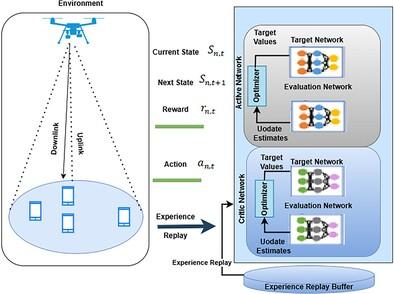DRL-Based Computation-Efficient Offloading and Power Control for UAV-Assisted MEC Networks
Abstract
Mobile edge computing (MEC) has achieved significant attention due to the availability of computational tasks in specific scenarios such as emergency applications like forest fire and earthquake remedies. The computationally demanding policy and user offloading policy are challenging problems to address in the energy constrained unmanned aerial vehicle (UAV) network. In this work, the computational task offloading, and power management is solved by using the multi-agent deterministic power management algorithm (MADPM) based on deep reinforcement learning. Every UAV works together as a team to understand the actor critic environment and to make decisions that will help achieve the goals. This involves transferring computational tasks from UAVs to more powerful ground stations or other UAVs to save energy and enhance performance. It requires intelligent decision-making to determine which tasks to offload and when. The joint optimization problem is verified with the simulation results and the proposed work is enabled with MEC in achieving the emergence of UAV related applications. Our simulations show that the MADPM algorithm, as suggested, enhances task offloading efficiency by 35% and reduces power consumption by 25% when compared with current methods. These findings underscore the ability of our method to greatly improve the UAV operational capacities.


 求助内容:
求助内容: 应助结果提醒方式:
应助结果提醒方式:


